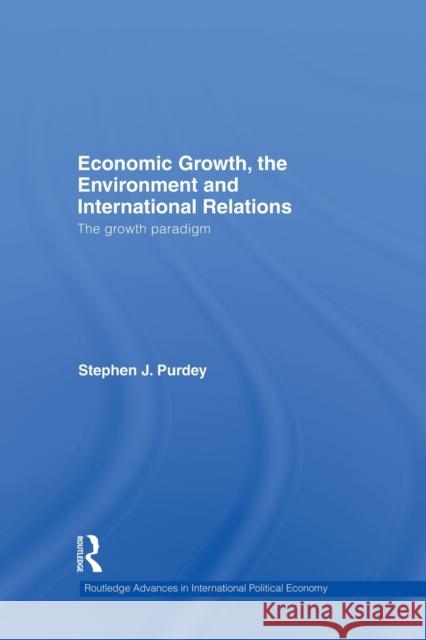Economic Growth, the Environment and International Relations: The Growth Paradigm » książka
Economic Growth, the Environment and International Relations: The Growth Paradigm
ISBN-13: 9780415503501 / Angielski / Miękka / 2012 / 192 str.
Economic Growth, the Environment and International Relations: The Growth Paradigm
ISBN-13: 9780415503501 / Angielski / Miękka / 2012 / 192 str.
(netto: 261,17 VAT: 5%)
Najniższa cena z 30 dni: 261,89
ok. 16-18 dni roboczych.
Darmowa dostawa!
The ubiquity of the commitment to economic growth, which Purdey refers to as the growth paradigm, is extraordinary. National governments around the world are seized of the same objective. Major international institutions such as the UN, the WTO, the World Bank, IMF and OECD, powerful international organizations such as regional trading blocs and multinational corporations -- even civil societies of all kinds enthusiastically pursue a larger economic pie. This book examines the deep origins and rise to prominence of the commitment to economic growth. It explains why, despite the diversity of regime types, levels of development, cultures and other divisions typical of international relations, all major actors in the modern global polity pursue an identical political priority. Purdey critically examines the growth paradigm highlighting its normative foundations and its environmental impact, especially climate change. Using a neo-Gramscian approach, Purdey re-engages the 'limits to growth' controversy, identifying the commitment to growth as a form of utopianism that is as dangerous as it is seductive. By illuminating and interrogating the history, politics and morality of the growth paradigm, this book shifts the terrain of the limits debate from instrumental to ethical considerations. It will be of interest to students and scholars of political economy, international relations, environmental studies and ethics.











